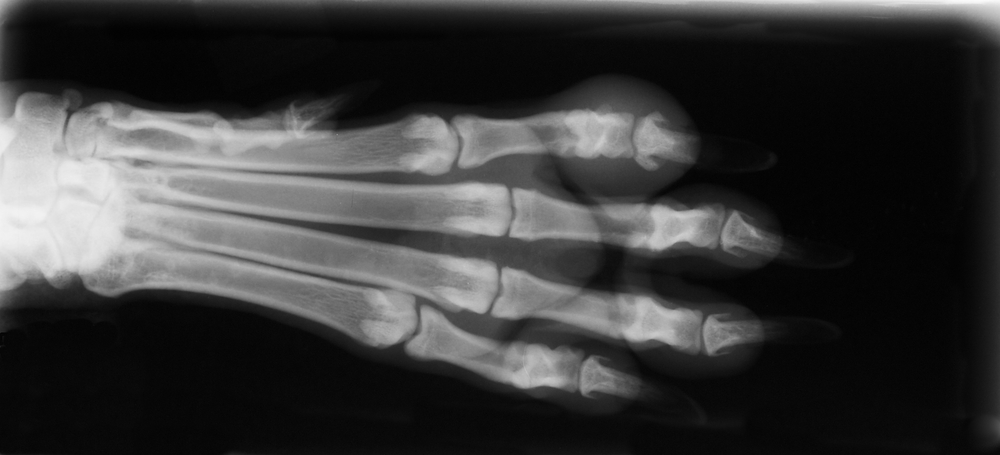Radiology plays an indispensable role in veterinary medicine, offering insights that can be critical for accurate diagnosis and treatment. At Happy Tails Animal Hospital, we are equipped with state-of-the-art radiological tools to ensure the best care for your pets. Under the expert guidance of Dr. Mann, our team strives to provide precise, efficient, and compassionate radiological services.
Symptoms Indicating the Need for Radiological Examinations
- Persistent limping or signs of pain
- Difficulty breathing or persistent coughing
- Swelling or pain in specific body areas
- Sudden changes in behavior or eating habits
- Signs of gastrointestinal obstructions, such as vomiting or constipation
The Significance of Radiology in Veterinary Medicine
Radiology stands as a cornerstone in modern veterinary medicine, primarily due to its capability to provide a non-invasive gateway into a pet’s internal world. This advanced imaging technique is indispensable for accurate diagnoses, allowing veterinarians a clear view of the internal structures without resorting to more intrusive methods. The clarity and detail these images offer make them instrumental in identifying various conditions, be it tumors, bone fractures, or any internal injuries that might otherwise remain undetected.
Moreover, the insights gained from radiological examinations don’t just stop at diagnosis. These findings often become the compass guiding the course of subsequent treatments or surgeries, ensuring that interventions are precise and tailored to the pet’s specific needs. Furthermore, the utility of radiology extends into the realm of monitoring. Regular scans, performed over a period, can effectively track the progress of a treatment regimen or keep tabs on the development or regression of certain conditions. In essence, radiology serves as both a diagnostic tool and a continual source of insight throughout a pet’s medical journey.
Radiology Treatment Process:
- Consultation: Dr. Mann will first conduct a thorough examination to determine the need for radiological intervention.
- Preparation: Depending on the type of radiological test, certain preparations like fasting might be required.
- Conducting the Scan: Using advanced equipment, the required scans are performed, ensuring minimal discomfort to the pet.
- Interpretation: The obtained images are meticulously analyzed to derive a diagnosis.
- Discussion: Post-analysis, Dr. Mann will discuss the findings, implications, and potential treatments with the pet owner.
Prioritizing Pet Health: Proactive Measures to Minimize Risks
Routine veterinary check-ups are pivotal in maintaining a pet’s overall health and well-being. By engaging in frequent visits to the vet, pet owners enhance the chances of early detection of potential issues. This proactive approach often means that conditions can be identified and addressed before they necessitate more extensive radiological examinations. Early diagnosis and intervention can save both time and distress in the long run.
Furthermore, the surroundings in which our pets live and play are of paramount importance. Ensuring these environments are devoid of hazards mitigates the risk of injuries or conditions that might later demand radiological insights. Beyond environmental precautions, the daily lifestyle choices made for pets also carry weight. Offering them a balanced diet coupled with consistent exercise acts as a preventive shield, warding off numerous health concerns before they arise.
Embracing Modern Techniques: The Future of Pet Healthcare
The evolution of veterinary radiology and its incorporation of sophisticated imaging techniques have markedly transformed our approach to pet health. No longer are we constrained by the limitations of external examinations; the internal complexities of our pets are now accessible, ensuring that no ailment remains concealed. These timely radiological interventions pave the way for expedited treatments, allowing potential health concerns to be tackled head-on and often resulting in swifter recoveries and enhanced outcomes.
At the heart of Happy Tails Animal Hospital lies a staunch commitment to this progressive facet of veterinary medicine. Our aspiration is not just to utilize this technology but to maximize its potential, all in pursuit of a singular objective: safeguarding the health and ensuring the enduring happiness of the pets entrusted to our care.

Frequently Asked Questions
How long does a typical radiological examination take at Happy Tails Animal Hospital?
The duration can vary based on the specific type of radiological test. However, most standard X-rays and scans are completed within 30 minutes to an hour. Dr. Mann and our team ensure your pet’s comfort throughout the process.
Is radiology safe for my pet?
Yes, radiological examinations are generally safe. We use modern equipment designed to minimize radiation exposure while obtaining clear images. If your pet requires multiple scans, Dr. Mann will discuss the benefits and any potential risks involved.
Will my pet need anesthesia during the radiological exam?
In many cases, anesthesia isn’t necessary. However, sedation or anesthesia might be used to ensure the pet remains still and the images are clear for certain procedures or if a pet is particularly anxious. Dr. Mann will discuss this with you prior to the examination.
Schedule a Radiological Examination Today
For in-depth radiological services and expert insights, trust Dr. Mann and Happy Tails Animal Hospital team in Renton, WA. Ensure your pet’s health with accurate diagnostics. Call us at (425) 254-2779 to schedule an appointment. Your pet’s well-being is our utmost priority.


